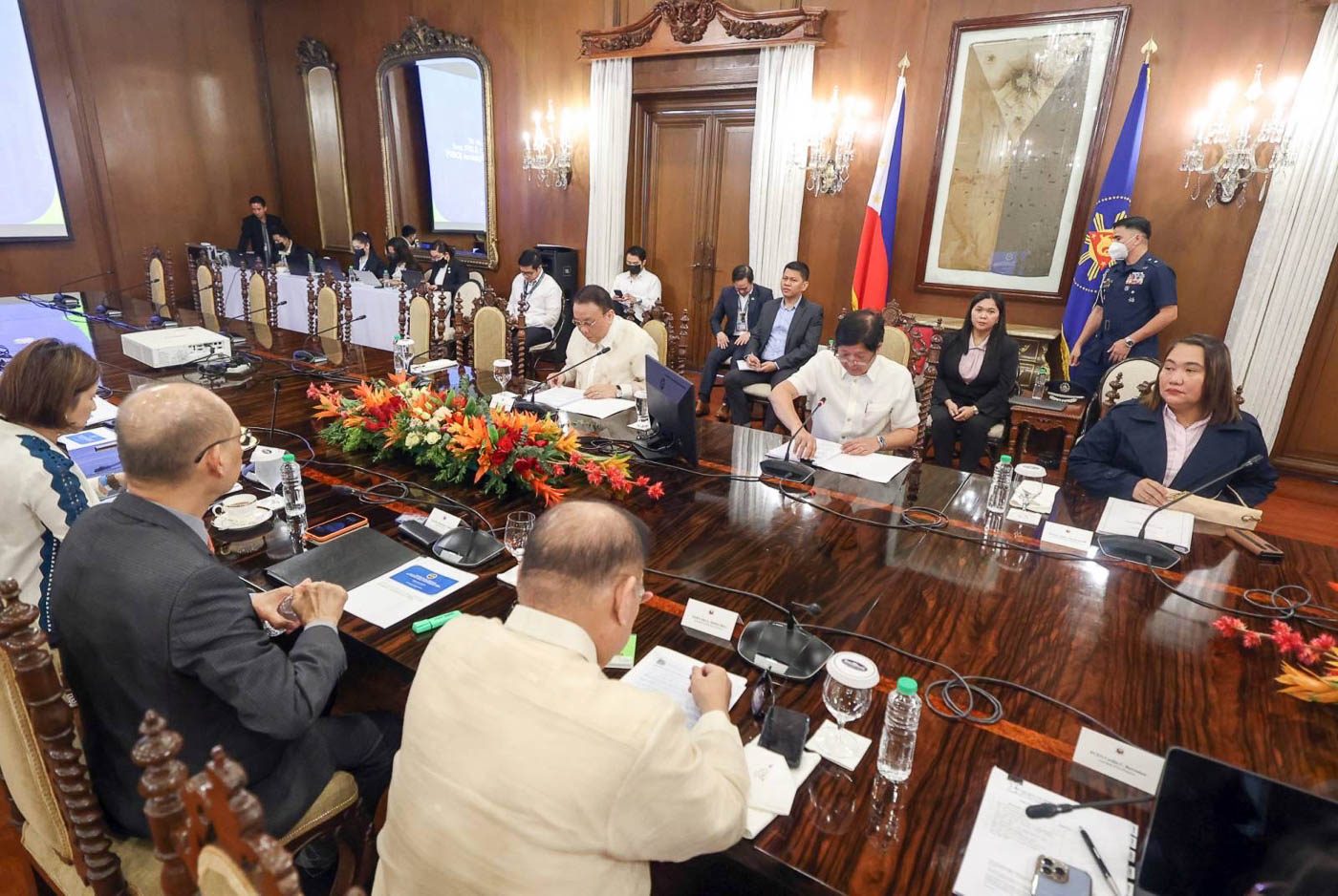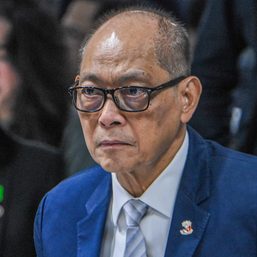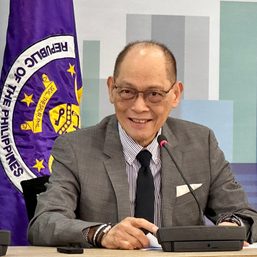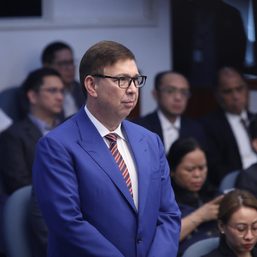SUMMARY
This is AI generated summarization, which may have errors. For context, always refer to the full article.

MANILA, Philippines – President Ferdinand Marcos Jr. is “willing to spend his political capital” on a long-running proposal to stop the continued increase in military and uniformed personnel’s pension and make active duty military and unformed personnel contribute to a pension system, said Finance Secretary Benjamin Diokno.
Diokno made the announcement on Tuesday, March 28, following a meeting in Malacañang between Marcos and his economic team.
The current set-up in the Philippines is that the pensions of retired military and uniformed personnel (MUP) are fully funded by the national government.
MUP refers to personnel from the Armed Forces of the Philippines, Bureau of Fire Protection, Bureau of Jail Management and Penology, Philippine Coast Guard, the Philippine Public Safety College, the Bureau of Corrections, and the Philippine National Police.
Uniformed personnel on active duty do not contribute to the pension fund, and pensions are “indexed” to the salary of a person of the same rank, which means retired uniformed personnel get the current salary befitting their rank upon retirement.
Finance chiefs in previous administrations have warned that this spelled disaster. When salaries are adjusted for those currently serving, their pensions increase, too. Uniformed personnel are able to retire after 20 years of service, and are rewarded the person of a person one rank higher.
“So pension can be received after 20 years of service with no minimum pensionable age. Some of them they get recruited at the age of 20, so they can already retire at the age of 40, and you know how long their lives are. Military people live longer than us, some at the age of 90. So they retire at 40, they get their pension up to age 90, isn’t that ridiculous?” said Diokno.
“If this goes on there will be a fiscal collapse,” he added. Diokno has long been pushing for reform in the pension system of MUP. As budget chief of former president Rodrigo Duterte, he also recommended the suspension of pension indexing to new rates.
According to Diokno, the Marcos administration is proposing the following changes, several of which have been proposed in previous administrations:
- The new policy will cover all active personnel and new entrants, meaning mandatory contributions begin with those currently or about to enter service.
- It will seek the removal of automatic indexation of pension to the salary of active personnel of similar ranks. This means pensions will no longer increase according to the salary increases of active personnel.
- Military uniformed personnel will receive their pensions at the age of 57. The current policy allows them to receive their pensions at 56, the mandatory retirement age.
- Mandatory contributions will be required for active personnel and new entrants, similar to the pension fund for government employees, the Government Service Insurance System. The percentage of the mandatory contribution will be staggered over a uniformed personnel’s years of service – from 5% in their first three years, to eventually 9% of their salary.
Previous attempts
“I told the President your predecessors have decided to kick the can down the road. They won’t want to address this. I usually call this the elephant in the room. Nobody would like to touch it, and they simply ignore it,” said Diokno.
Neither the proposal nor the push are new.
There were talks to introduce temporary reforms to the pension system under Duterte, but those proposals fell through, partly through lobbying from former military personnel who are pensioners themselves – officials who held key posts in politics and governance.
Tensions were heightened in late 2018, in the lead-up to the passage and signing of a joint resolution that led to a dramatic increase of soldier and cops’ base pay. The lobby to make automatic indexing continue – so that pensioners would enjoy the same new, higher salaries – won in the end, with Duterte’s “complete turnaround” in setting aside the push to postpone it for at least a year.
Duterte’s finance chief then, Carlos Dominguez III, announced in 2018 that Duterte had approved guidelines for creating a GSIS unit that would manage a proposed pension fund for military personnel.
Aquino’s efforts
Attempts were made to reform the pension system under the administration of the late president Benigno Aquino III. Back in 2011, then budget chief Butch Abad warned that a “crisis looms in the military pension system” because by 2016, or by the end of the Aquino admin, pension spending would outpace spending for the salaries of those actively in service.
The budget department and the GSIS then conducted an actuarial study to figure out a sustainable version of the military pension system.
In his last State of the Nation Address, the late Aquino pushed for the passage of the Unified Uniformed Personnel Pension Reform Bill.
More than a decade later, Diokno describes the unchanged pension system as “not sustainable.” The Finance Secretary said that the government currently spends more for military and police pensions than it does on the operating and maintenance expenditures of the Armed Forces.
What makes this push different from previous attempts? Diokno, who also served under the previous Duterte administration, pointed to Marcos’ 2022 electoral win.
“Remember that he is the first president to be elected by a significant majority… he really has very strong support and he’s willing to spend his political capital for this because nakikita niya if hindi niya ginawa ito (he sees that if he does not do this), there will be fiscal collapse in the future,” he said.
Diokno also pointed to the current dynamics in the legislature, in which a supermajority in both chambers are allied with Marcos. “Mr Marcos also has very strong control over Congress so it’s going to be less problematic for him to push forward such a major reform,” said Diokno.
The last president Diokno served also enjoyed majority support in both chambers of Congress. – Rappler.com
Add a comment
How does this make you feel?

![[In This Economy] When invoking supply and demand can get you fired](https://www.rappler.com/tachyon/2023/09/cielo-magno-supply-demand-TL-sep-11-2023.jpg?resize=257%2C257&crop_strategy=attention)




![[In This Economy] Is the Marcos government unlawfully dipping into PhilHealth funds?](https://www.rappler.com/tachyon/2024/07/marcos-government-philhealth-funds-july-12-2024.jpg?resize=257%2C257&crop=425px%2C0px%2C1080px%2C1080px)





![[Just Saying] SONA 2024: Some disturbing points](https://www.rappler.com/tachyon/2024/07/TL-marcos-sona-points-july-23-2024.jpg?resize=257%2C257&crop=335px%2C0px%2C720px%2C720px)

There are no comments yet. Add your comment to start the conversation.